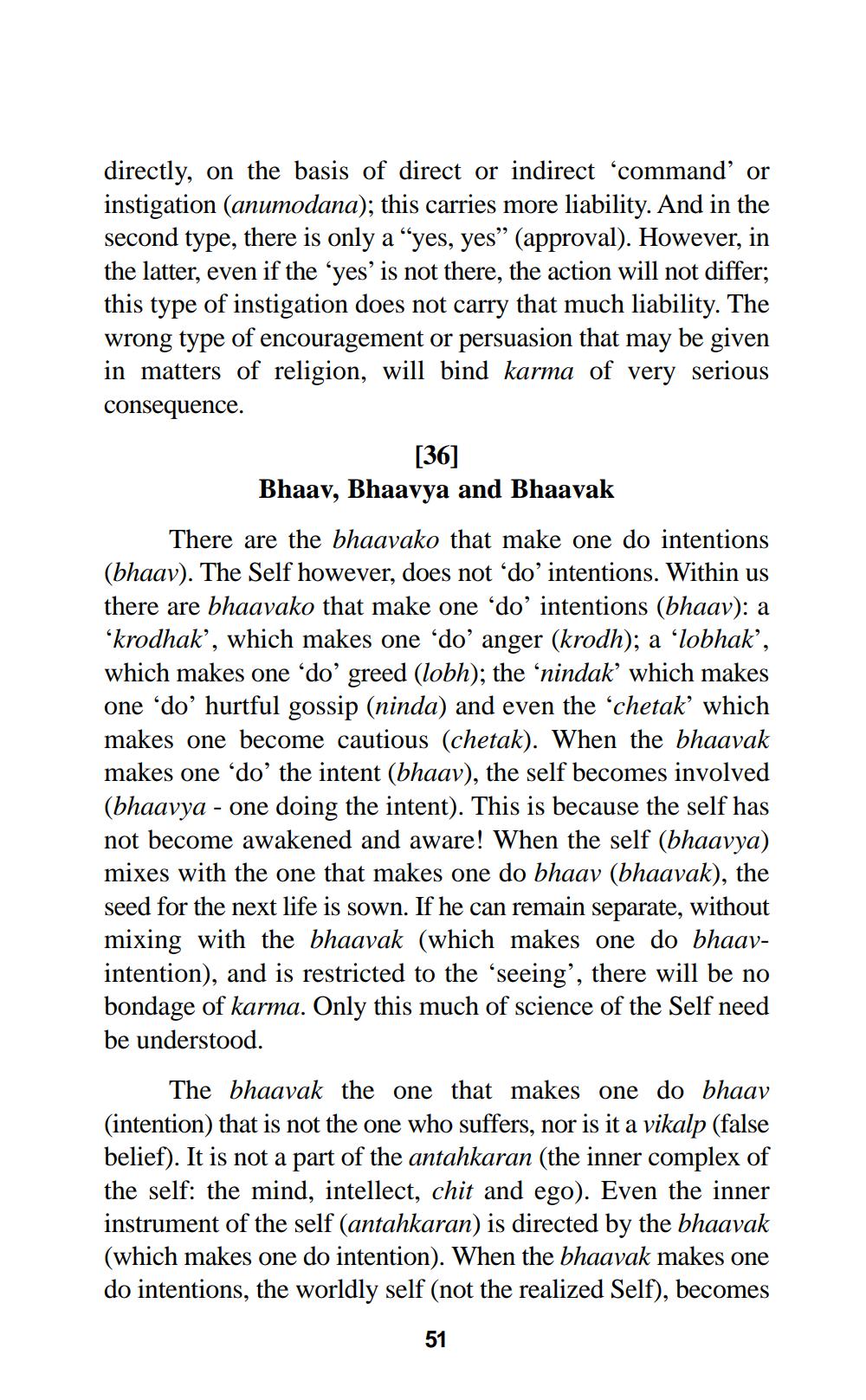________________
directly, on the basis of direct or indirect ‘command' or instigation (anumodana); this carries more liability. And in the second type, there is only a “yes, yes” (approval). However, in the latter, even if the 'yes' is not there, the action will not differ; this type of instigation does not carry that much liability. The wrong type of encouragement or persuasion that may be given in matters of religion, will bind karma of very serious consequence.
[36] Bhaav, Bhaavya and Bhaavak There are the bhaavako that make one do intentions (bhaav). The Self however, does not 'do' intentions. Within us there are bhaavako that make one ‘do’ intentions (bhaav): a 'krodhak’, which makes one 'do' anger (krodh); a “lobhak”, which makes one ‘do' greed (lobh); the ‘nindak' which makes one ‘do' hurtful gossip (ninda) and even the ‘chetak' which makes one become cautious (chetak). When the bhaavak makes one ‘do' the intent (bhaav), the self becomes involved (bhaavya - one doing the intent). This is because the self has not become awakened and aware! When the self (bhaavya) mixes with the one that makes one do bhaav (bhaavak), the seed for the next life is sown. If he can remain separate, without mixing with the bhaavak (which makes one do bhaavintention), and is restricted to the 'seeing', there will be no bondage of karma. Only this much of science of the Self need be understood.
The bhaavak the one that makes one do bhaav (intention) that is not the one who suffers, nor is it a vikalp (false belief). It is not a part of the antahkaran (the inner complex of the self: the mind, intellect, chit and ego). Even the inner instrument of the self (antahkaran) is directed by the bhaavak (which makes one do intention). When the bhaavak makes one do intentions, the worldly self (not the realized Self), becomes
51




